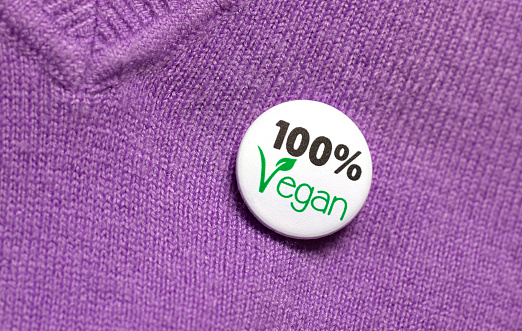If you needed an extra reason for going plant-based, this is it: a new study suggests that following a vegan diet may make you happier than eating meat or being a pescatarian. But how reliable is this new finding? We investigate whether veganism really can make you happy.
It’s a fact that eating a more plant-based diet is great for the planet and for your physical health, but a new study claims that going vegan may also have a positive impact on mental wellbeing.
Vegans enjoy a greater level of happiness than meat-eaters and pescatarians, the Tracking Happiness report claims, with happier people being more likely to eat a 100% vegan diet in the future. So, what is it about veganism that improves our psychology and how can we use food to boost our long-term mood?
You may also like
The UK’s best vegan chocolate bars, as ranked by vegans and non-vegans
Tracking Happiness asked 11,537 people in the USA to track their moods and asked about their diets. The results were then grouped into four categories: vegan, vegetarian, pescatarian and meat-eater. Vegans reported 7% higher happiness rating than meat-eaters, who fell below the average rating of 6.90.
Interestingly, the study suggested that it wasn’t just the plants that were making people happier; happier people are more likely to turn plant-based. Out of the 8,988 meat-eaters surveyed, those who reported the highest happiness ratings were more likely to adopt a fully vegan diet in the future. The main driver for going vegan or vegetarian, according to the study, is the environment, with 32% of the surveyed herbivores saying that protecting the environment was their biggest motive, and these were the people who had the highest happiness scores. Those who cited animal cruelty tended to have the lowest ratings within the plant-based groups.
So far, so good. Who wouldn’t want to follow a lifestyle (veganism definitely isn’t a diet but a decision that impacts every part of your life) that not only benefits the planet but also makes you feel good?
Kimberley Wilson, chartered psychologist and nutrition expert, explains that the link between vegan food and mood may be down to the current narrative happening around going plant-based. “Compared with previous generations, veganism is currently associated with a broader social identity that is linked to kindness, compassion and social justice,” she tells Stylist, “all of which could contribute to vegans feeling more satisfied (happier) with their life choices and thereby enhancing self-esteem. This effect would be independent of any biological impact of diet on brain health or mood.”

However, it’s also important to look at these studies with a healthy degree of skepticism. Kimberley suggestst that while it’s possible that someone living with depression might benefit from a change of diet, for others, adopting a plant-based diet could exacerbate anxieties around food.
“While there are, of course, important benefits to consuming more plant foods, the current evidence suggests that there are no specific mental health benefits of vegetarianism/veganism over a well-balanced, omnivorous diet.”
Remember, this study is based on what people have reported – to have concrete evidence, we’d need more rigorous research that involves things like double-blinded, randomised controlled trials. The difficulty there is that most people can recognise what they’re eating; unless you feed people plants and meat in pill-form, participants are bound to notice what they’re eating so there’d be no way of testing a placebo. It’s also worth noting that this study didn’t track people for any length of time so we have no way of knowing whether people felt good on a particular day or regularly.
It’s also interesting that this study seems to fly in the face of previous studies that have looked into the link between mood and plant-based living. Kimberley cites a 2012 German study that found that vegetarianism was associated with an increased risk of mood disorders. “The authors say that this could be for a number of reasons, including the nutritional content of vegetarian diets, personality traits linked to vegetarianism and the fact that most vegetarians are women (women have a higher risk of mood disorders).
“However, a paper published in 2018 indicated too, that vegetarian men suffered more mood disorders than non-vegetarian men. Similarly, an Australian study of 1,000 women found that those who consumed animal protein had 35% reduced risk of having major depression or low mood and 32% reduced odds for anxiety disorder.”
You may also like
3 iron-packed vegan recipes for all the plant-based energy
So, where does that leave us? Well, it’s undeniable that plants make us healthier and perhaps the best takeaway from this recent study is that we should all be eating as many plants, fruits, nuts and seeds as possible. Regularly eating red meat can put you at risk of things like colon cancer and high blood pressure, while lots of fish contain high mercury levels (particularly tuna and mackerel) and, according to a 2021 study published in Scientific Reports, microplastics.
It’s impossible to overlook the environmental benefits of going vegan, too – something that may well influence your happiness if you do live with eco-anxiety or are concerned about global warming. However, if you do enjoy the odd chicken supper or eating fish is the easiest way for you to meet your protein and omega-3 requirements, then rest assured that the evidence for good mood food is far from conclusive.
Check out our high-protein, vitamin-rich vegan recipes over on the Strong Women Training Club.
Source: Read Full Article
